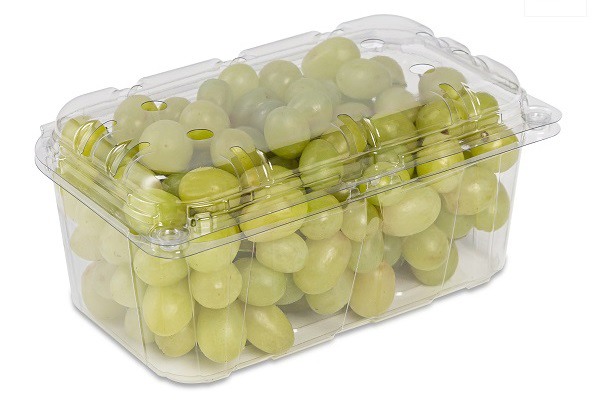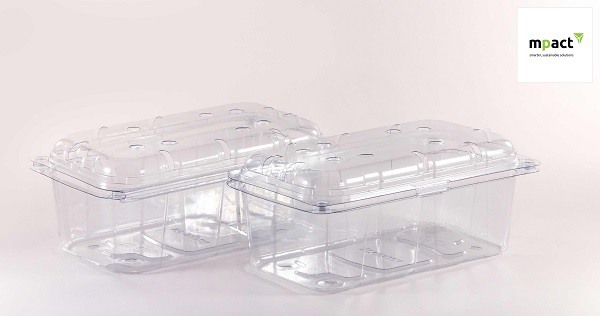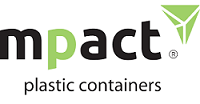Traditionally recycled polyethylene terephthalate, commonly referred to as rPET, focused on applications such as beverage bottles, but South African packaging manufacturer Mpact Versapak has extended it to food punnets.
Mpact Versapak’s thermoformed punnet is the first food-approved punnet in South Africa to be produced from 100% post-consumer PET, made from mainly PET beverage bottles. Because of its use in fruit exports, it is compliant with European Union and BRC food safety and packaging standards.
“Returning from our visit to England in 2019, it was clear that the market required not only a 100% rPET punnet, but one made from 100% recycled post-consumer waste,” says Dawie Maritz, national sales manager of Mpact Versapak’s agricultural product range. This innovation has recently won them a Best in Circularity Award from PETCO, a PET Producer Responsibility Organisation.
New Waste Management Act stimulates rPET demand
“Mpact believes in contributing to a circular economy and the essence of using recycled post-consumer waste is to facilitate diversion from landfill, as well as the recovery of this valuable resource, which stimulates job creation too.”
 The Versapak recycled grape punnet, structurally identical to the virgin plastic grape punnet (photos supplied by Mpact)
The Versapak recycled grape punnet, structurally identical to the virgin plastic grape punnet (photos supplied by Mpact)
He continues: “Currently, as far as we are aware, PET is the only polymer that can be processed into food grade packaging after being recovered from landfill. It's fairly easy to get it food-approved as opposed to some other plastic grades, as the technology is available in South Africa.”
The rPET used to produce the grape punnet is sourced from a European Food Safety Authority-compliant South African source and structurally the same as Mpact’ s virgin PET punnet.
“Mpact Versapak indirectly exports to a number of countries who are aligned to the same circular economy objectives as ourselves,” he says. “We therefore envisage, based on the availability of rPET, which is in high demand, that the rPET punnet demand will exceed demand for the virgin PET punnet.”

rPET punnets are competitively priced
The costs of rPET punnets are influenced by demand and supply of rPET, which tends to fluctuate.
“Recycled content reduces dependence on virgin material and creates a demand-pull for recycled packaging which stimulates investment in the collection, sorting and recycling industry,” Dawie explains. “Currently, rPET punnets are competitively priced compared to virgin material.”
The company notes that there is an increase in demand for rPET products following the implementation of section 18 of the new Waste Management Act, effective since 5 May 2021. These regulations relate to extended producer responsibility (EPR) in terms of a number of industries and products, including the paper and plastics packaging industries.
 For more information:
For more information:
Mpact
Tel: +27 21 877 5500 / 0860 837 727
Email: versapaksales@mpact.co.za
http:www//mpactversapak.co.za
